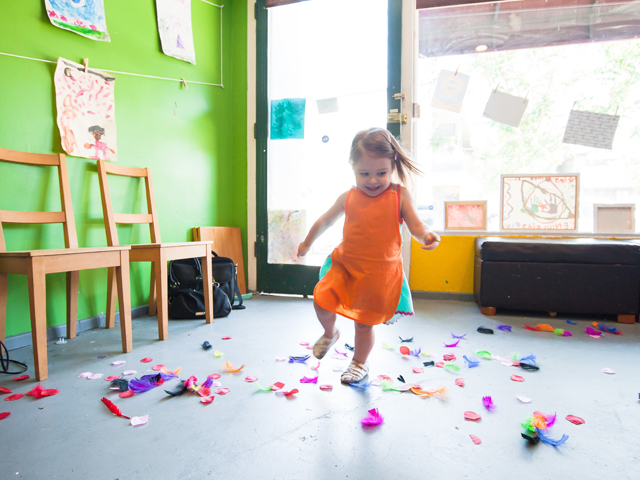Child's Play Vital

Researchers at Monash University have launched Australia's largest study into play-based education, which will inspire teachers and parents to develop the next generation of thinkers in science, technology, engineering and mathematics (STEM).
Professor Marilyn Fleer from the Faculty of Education has unveiled an Australian-first project called the Conceptual PlayLab – a five-year investigation into how 'play-based' education can deliver essential cognitive and learning outcomes for infants, toddlers and preschoolers in STEM.
As part of the $3.2 million Australian Research Council (ARC) funded project, Professor Fleer will test a new model of teaching called Conceptual PlayWorld through a purpose-built app which supports teachers and parents to create a play-based world that helps children form ideas and use their imagination to solve problems.
The grant was part of an ARC Laureate Fellowship presented to Professor Fleer in 2018. It is the first of its kind awarded to early childhood research and only the second awarded to education.
This research will position Australia as a research leader in this field, developing high levels of teacher quality and 21st century thinking skills in young minds.
"Internationally, the school-style curriculum is making its way into preschools which is not a good thing. This has the potential to deprive young children of vital play-based, imaginative and creative learning opportunities," Professor Fleer, who has spent more than 30 years researching play-based education, said.
"Longstanding evidence has shown the first three years of life are a vital development period for the human brain and cognitive stimulation – especially through imaginative play – and are known to influence lifelong capacity for learning and inquiry.
"Early childhood education is at a point in history where the teaching and learning of STEM concepts are needed, but where large-scale research of how to teach these concepts in Australian play-based settings has not yet been undertaken."
Professor Fleer will lead a programmatic study of conceptual play for play-based settings and family homes through three distinct pillars:
The first project will follow a cohort of 130 infants across a five-year period and diverse early childhood settings to give insights into the unique nature of imagination in STEM and how it changes with age;
The second project will explore how families create conditions for imaginative learning. One hundred children and their families from different demographics will be followed at home in the early morning period, in the late afternoon, evenings and on weekends for four months to see if the home environment provides sufficient STEM concept formation; and
Finally, more than 3000 qualified early childhood teachers will be surveyed on how they create conditions for play-based learning using the STEM PlayWorld's model for infants, toddlers and pre-schoolers.
Professor Fleer will also draw upon leading research by international scholars at the University of Oxford and Trinity College in Dublin, as well as an expansive network of educational partners in Canada, China, Denmark, Lithuania, Norway, Russia, Sweden and the USA.
Results from this study will also form the basis of a national teaching framework that can help early childhood educators confidently teach STEM through play.
Educational Consultant at Preshil Independent Progressive School in Melbourne, Rebecca Lewis, has been an early childhood teacher for more than 10 years and says play-based learning is both dynamic and fun for both children and teachers.
Ms Lewis was one of the first educators in Australia to test this new model. She said Professor Fleer's STEM PlayWorld approach will motivate children to learn in a very natural and purposeful way.
"Through play, we start with a story that creates a world shared by children and teachers. This provides an emotional hook as children develop empathy with characters in the story. STEM concepts embedded in the play are then used to solve problems which encourages children's creative and critical thinking skills."
Professor Fleer said: "Without an evidence-based model of how to teach STEM concepts in play-based settings, then the preschool and childcare sector will continue to use a model of teaching designed for much older children. These fail to inspire young children to develop scientific lenses and inquiring minds about their everyday world."
MORE



